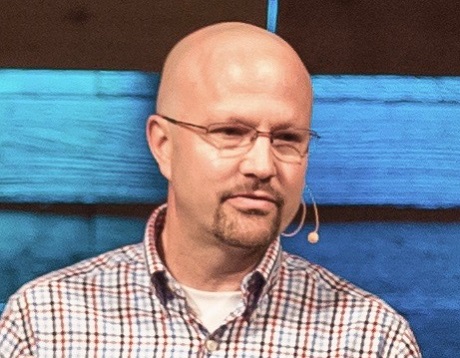- Calls to this hotline are currently being directed to Within Health, Fay or Eating Disorder Solutions
- Representatives are standing by 24/7 to help answer your questions
- All calls are confidential and HIPAA compliant
- There is no obligation or cost to call
- Eating Disorder Hope does not receive any commissions or fees dependent upon which provider you select
- Additional treatment providers are located on our directory or samhsa.gov
The Incarnation of Christ and the Value of the Human Body

Christian Content Track
For Christians, the power of the Christmas story is that hope lies with a baby born in a farmhouse to a young woman 2,000 years ago. Charles Wesley, in his well-known Christmas hymn, “Hark! The Herald Angels Sing”, bids us to join the angels as they proclaim Jesus’ incarnation:
Christ by highest heav’n adored, Christ the everlasting Lord!;
Late in time behold Him come, Offspring of a Virgin’s womb;
Veiled in flesh the Godhead see, Hail the incarnate Deity….
For women and men who find themselves hating their bodies and at war with their flesh, there is a stunning promise in these lyrics reflecting an often misunderstood truth of God’s word; the human body is delightful, meaningful, and worthy of care.
Incarnation is a theological term that means “to be made flesh.” It is the Christian doctrine that God became a human person with flesh and bone. Theologian Michael Williams writes, “In Jesus, the incarnate Word of God made his home with us. He ate our food and drank our water…He entered completely into the affairs of this world.” [1] Christmas is the celebration that God took on human form to rescue and redeem us from living broken lives in a broken world.
Incarnation begins at Christmas with Jesus born in a manager, is expressed through his ministry as he teaches, heals, and loves people, climaxes as his body is crucified on our behalf, and is consummated through that same body rising from the dead. John Wesley’s hymn celebrates this mystery, and rejoices that we can now see God, who was formerly unseen, in the physical body of Jesus Christ, the “Incarnate Deity.”
John 1:14 declares that “the Word became flesh and dwelt among us, and we have seen his glory” (ESV). That Jesus became human, with a body, is no small thing. The incarnation shows that the body is valuable to God, echoing the claims of Genesis that everything He created is good.
 Jesus so highly values the human body that much of his ministry on earth is actively healing diseases.
Jesus so highly values the human body that much of his ministry on earth is actively healing diseases.
When asked by the disciples of John the Baptist if he is the expected Messiah, Jesus responds, “Go and tell John what you have seen and heard: the blind receive their sight, the lame walk, lepers are cleansed, and the deaf hear, the dead are raised up, the poor have good news preached to them” (Luke 17:1-22 ESV).
Jesus not only healed those in his time, but the gospel promises the holistic healing of our bodies as well (Philippians 3:20-21). One day there will be no more pain, tears, aches, self-harm, anorexia, or bulimia.
We will know and follow our hunger cues, enjoying fantastic food without binging or feeling guilt. We will celebrate our arms and legs, rejoice in a good belly laugh, and see one another as whole people, body, and all.
This is good news! Jesus is not afraid to be human and to take on a body. Neither is God opposed to your body. He is working to heal it, as well as your relationship to it. He became flesh, so you would no longer be at war with yours.
REFERENCE:
Williams, M. D. (2005). Far As the Curse is Found; the Covenant Story of Redemption. Phillipsburg, NJ: P&R Publishing.
About the Author:
 Travis Stewart, LPC has been mentoring others since 1992 and became a Licensed Professional Counselor in 2005. His counseling approach is relational and creative, helping people understand their story while also building hope for the future. Travis has experience with a wide variety of issues which might lead people to seek out professional counseling help.
Travis Stewart, LPC has been mentoring others since 1992 and became a Licensed Professional Counselor in 2005. His counseling approach is relational and creative, helping people understand their story while also building hope for the future. Travis has experience with a wide variety of issues which might lead people to seek out professional counseling help.
This includes a special interest in helping those with compulsive and addictive behaviors such as internet and screen addiction, eating disorders, anxiety, and perfectionism. Specifically, he has worked with eating disorders since 2003 and has learned from many of the field’s leading experts. He has worked with hundreds of individuals facing life-threatening eating disorders in all levels of treatment. His website is wtravisstewart.com
The opinions and views of our guest contributors are shared to provide a broad perspective on eating disorders. These are not necessarily the views of Eating Disorder Hope, but an effort to offer a discussion of various issues by different concerned individuals.
We at Eating Disorder Hope understand that eating disorders result from a combination of environmental and genetic factors. If you or a loved one are suffering from an eating disorder, please know that there is hope for you, and seek immediate professional help.
Published January 10, 2020, on EatingDisorderHope.com
Reviewed & Approved on January 10, 2020, by Jacquelyn Ekern MS, LPC

The EatingDisorderHope.com editorial team comprises experienced writers, editors, and medical reviewers specializing in eating disorders, treatment, and mental and behavioral health.

